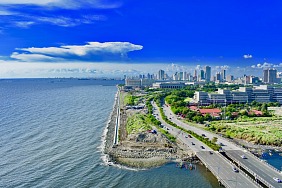Are you looking to work remotely in Italy? If so, you will need an appropriate remote work visa. Obtaining a remote work visa in Italy is a multi-step process. Here’s a look at what you need to know to get started.
Understanding Remote Work Visas in Italy
The Italian government has recently passed legislation that allows for the remote work visa. This visa is specifically designed for individuals who wish to work remotely from Italy. It is a specialized type of visa, and it is not included in the list of Italian visas.
The remote work visa is different from other Italian visas in that it does not require the applicant to have a job offer in Italy. It is also a more flexible visa than other Italian visas, as it allows the holder to travel in and out of the country without the need to apply for a separate visa.
It is important to note that the remote work visa is not available to everyone. To be eligible, you must meet certain criteria. The criteria include being a resident of an EU Member State, having a valid residence permit in Italy, and being able to provide proof of income.
The remote work visa is valid for a maximum of two years and may be extended for up to an additional two years. The visa is also renewable and can be extended for up to five years.
Requirements for Applying for a Remote Work Visa in Italy
To apply for a remote work visa in Italy, you must first have a valid residence permit. The residence permit must be in the name of the applicant. It must be valid for the duration of the visa. You must also have a valid passport or other valid travel document.
In addition to the residence permit and travel document, you must also provide proof of income. This can be in the form of bank statements or other financial documents. You must also provide proof of health insurance and a criminal record check.
Once you have collected all of the required documents, you must register for the visa application process. You must submit the application and all supporting documents to the Italian consulate or embassy in your home country. You will be required to attend an interview with a consular officer. The consular officer will review your application and supporting documents and make a decision.
Once your application is approved, you will be issued a remote work visa. You will be required to pay a fee for the visa. You must also pay the visa processing fee.
What to Expect After Your Remote Work Visa is Approved
Once you have received your remote work visa, you will be able to work remotely in Italy. You will be able to travel in and out of the country without having to apply for a separate visa. You will also be able to stay in Italy for up to two years.
You will be responsible for obtaining health insurance in Italy. You will also be responsible for paying taxes in Italy. You may be eligible for certain tax deductions, depending on the type of work you are doing.
It is important to note that the remote work visa is not a permanent residence visa. You will not be able to apply for permanent residence in Italy while on a remote work visa. You must apply for a separate visa if you wish to become a permanent resident.
How to Obtain a Remote Work Visa in Italy
Obtaining a remote work visa in Italy is a multi-step process. You must first collect all the required documents, including a valid residence permit, a valid passport or other travel document, proof of income, proof of health insurance, and a criminal record check. You must then register for the visa application process and submit the application and all supporting documents to the Italian consulate or embassy in your home country.
You will then be required to attend an interview with a consular officer. Once your application is approved, you will be issued a remote work visa. You will be responsible for obtaining health insurance in Italy and paying taxes.














